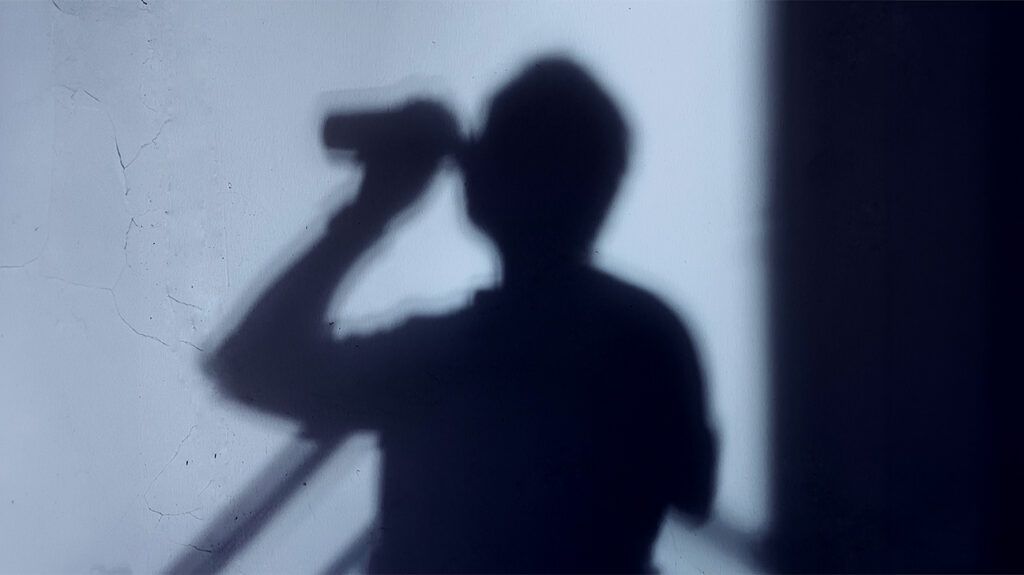Alcoholic insanity is an outdated term to describe alcohol-related psychosis, a rare condition in which alcohol use disorder, acute alcohol intoxication, and alcohol withdrawal can cause symptoms of psychosis.
Current research recognizes alcohol-related hallucinations, delusions, and delirium tremens, which are severe alcohol withdrawal symptoms, as symptoms of alcohol-related psychosis.
Healthcare professionals and researchers may also call this condition alcohol-induced psychosis or alcohol hallucinosis.
This article examines the symptoms, causes, and risk factors of alcohol-induced psychosis. It also describes the diagnosis and treatment of the condition, and information on seeking help.

Symptoms of alcohol-induced psychosis occur
Withdrawal from alcohol may cause severe symptoms in some people with alcohol use disorder. This severe form of withdrawal is delirium tremens (DT), which people may also call alcohol-withdrawal delirium.
Research from 1886 highlights DT as the
Alcohol-related dementia is a distinct condition in which alcohol misuse leads to brain damage and cognitive impairment.
Within
- visual, auditory, and tactile hallucinations
- seizures
- confusion
- agitation
- tachycardia (a fast resting heart rate)
- hyperthermia (an unusually high body temperature)
- hypertension (high blood pressure)
- diaphoresis (excessive sweating)
Alcohol use can lead to various psychiatric symptoms. However, alcohol-induced psychosis is
Researchers do not know what causes alcohol-induced psychosis.
However, researchers believe the psychosis may be due to alcohol altering the functioning of neurotransmitters, such as serotonin and dopamine.
Some studies suggest that changes in dopamine receptors may lead to psychosis symptoms. Others indicate that symptoms such as hallucinations may be due to abnormalities in amino acids, which can decrease serotonin levels and increase dopamine activity.
Alcohol may also affect the senses, such as hearing, which can also contribute to symptoms of psychosis.
A person may be at
- have alcohol use disorder
- drink large amounts of alcohol
- are experiencing alcohol withdrawal
- have severe alcohol withdrawal symptoms
- become dependent on alcohol at a young age
- have a mental health condition
- live alone
- are genetically predisposed to alcohol-induced psychosis
- are male
- are unemployed
- are from a low-income household
To diagnose alcohol-induced psychosis, a doctor may perform several tests. They can begin with a detailed physical examination of a person’s vital signs. They may also ask for a history of the person’s alcohol use.
A doctor may test the person’s responses to stimuli and evaluate them for signs of trauma, infection, or other possible causes of the symptoms. This
- imaging scans
- urine drug screening tests
- toxicology screening tests
- liver function tests
According to the Diagnostic and Statistical Manual of Mental Disorders, Fifth Edition (DSM-5), diagnosis for alcohol-induced psychosis
- significant hallucinations or delusions are present
- the hallucinations or delusions began during or soon after alcohol intoxication or withdrawal
- there is no other condition present that explains the symptoms
- there are symptoms other than delirium
- the symptoms cause significant distress or make everyday activities difficult
According to a 2018 systematic review, alcohol cessation and antipsychotic medications may benefit some people with alcohol-induced psychosis.
However, the review authors highlight that current studies provide mixed results. Further research is necessary to learn the most effective treatment.
Medications such as benzodiazepines
Stopping alcohol use may result in withdrawal symptoms, including:
Severe symptoms, such as seizures, can indicate that a person is more likely to progress to DT. DT can last up to
It may be dangerous for people who are dependent on alcohol to stop using it suddenly. DT can be life threatening: Mortality occurs in up to 37 in 100 people with DT who do not receive appropriate treatment.
A person should seek professional help or support to stop using alcohol safely.
Alcohol-induced psychosis is a severe condition that can have a serious impact on a person’s life and may be life threatening.
People with symptoms of alcohol-induced psychosis should speak with a healthcare professional for diagnosis and treatment.
A healthcare professional can also help a person experiencing alcohol use disorder, providing support and suggesting methods for reducing alcohol intake.
The
The NIAAA also recommends a person seek professional assistance, which they can find using the
- outpatient services, such as counseling and medication
- partial hospitalization
- residential programs
- intensive inpatient services to help medically manage withdrawal
How to help someone with alcohol-induced psychosis
Alcohol-induced psychosis and DT can be medical emergencies that require prompt treatment. If someone has alcohol-induced psychosis, a person can help them by calling 911 or taking them to an emergency room.
While waiting for medical assistance, a person should remain calm and respond gently to the individual experiencing psychosis.
They should keep the individual in a safe environment, if possible, with close monitoring and support to ensure they do not harm themselves until help arrives.
Alcoholic insanity is an outdated term that refers to conditions such as alcohol-induced psychosis and delirium tremens.
Alcohol-induced psychosis is a rare condition that may cause symptoms of psychosis, such as delirium and hallucinations, in people with alcohol use disorder.
It can occur due to acute intoxication and alcohol withdrawal and may be a medical emergency. People should call 911 or go to an emergency room if it occurs.
Treatment may involve medication and alcohol cessation. A person can seek professional support to stop alcohol use.
